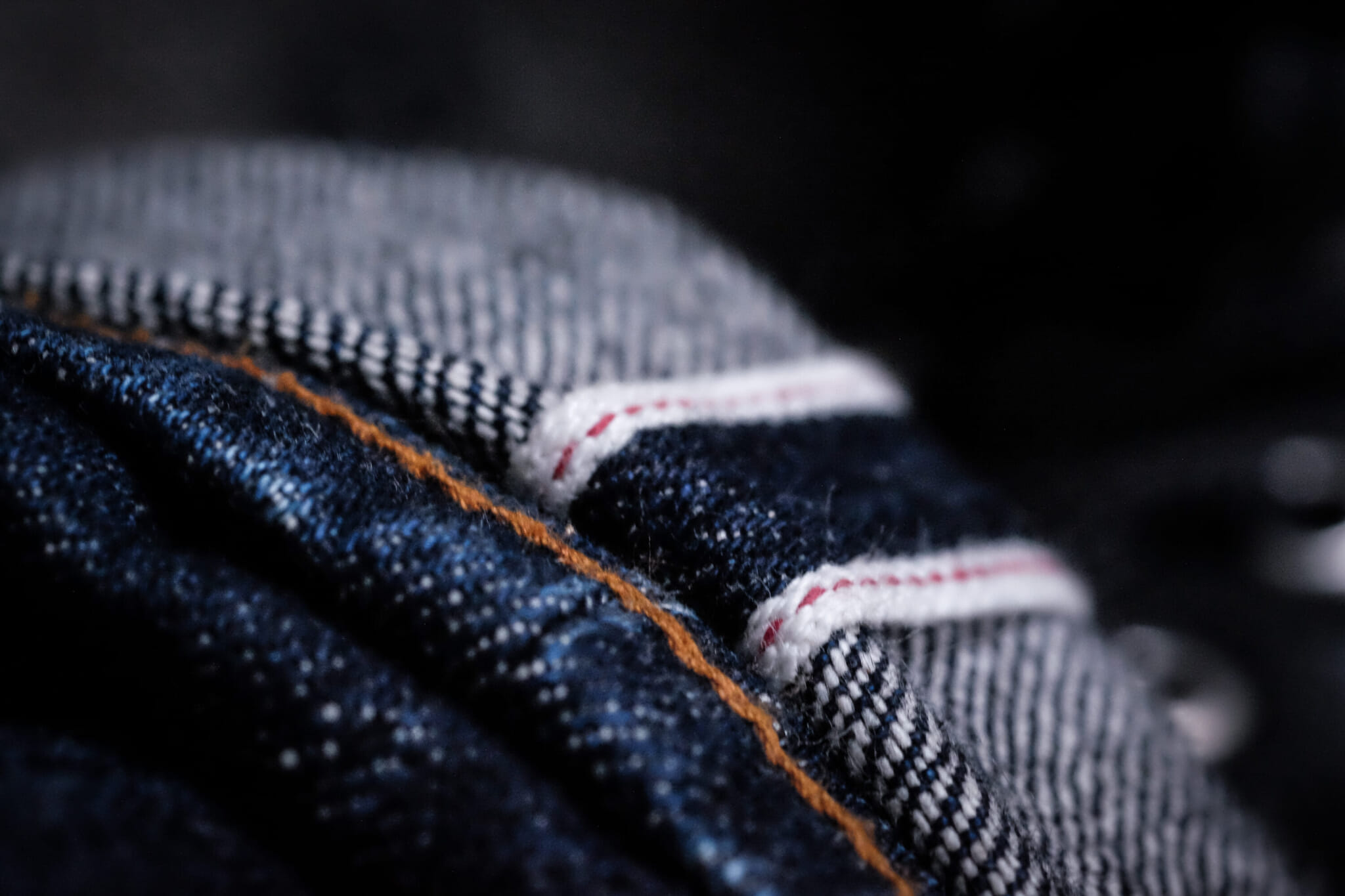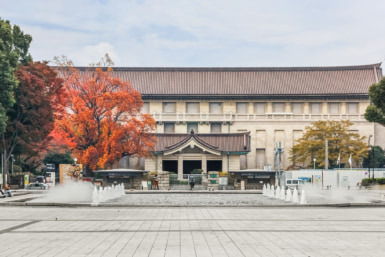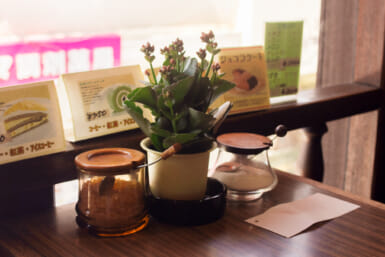A stint at my local Levi’s store during college essentially rendered me a jeans expert. I’d periodically impart knowledge I’d learned on the job to humor my long-suffering housemates. Anyone heading round after a night at the club would find an industrial freezer full of jeans, freezing out the dance floor stink. Then I discovered Japanese denim, which was akin to having a blindfold removed from my eyes.
Classic western jeans pale in comparison. The fit, weight and color of Japanese denim is a completely different kettle of fish. I put away the denim-master hat and started to study. Why is Japanese denim so good? Which brands should a jeans enthusiast look out for? Behold our guide to Japanese jeans and denim brands. This is a mere toe in the water of the Japanese denim world, but a good place to start.
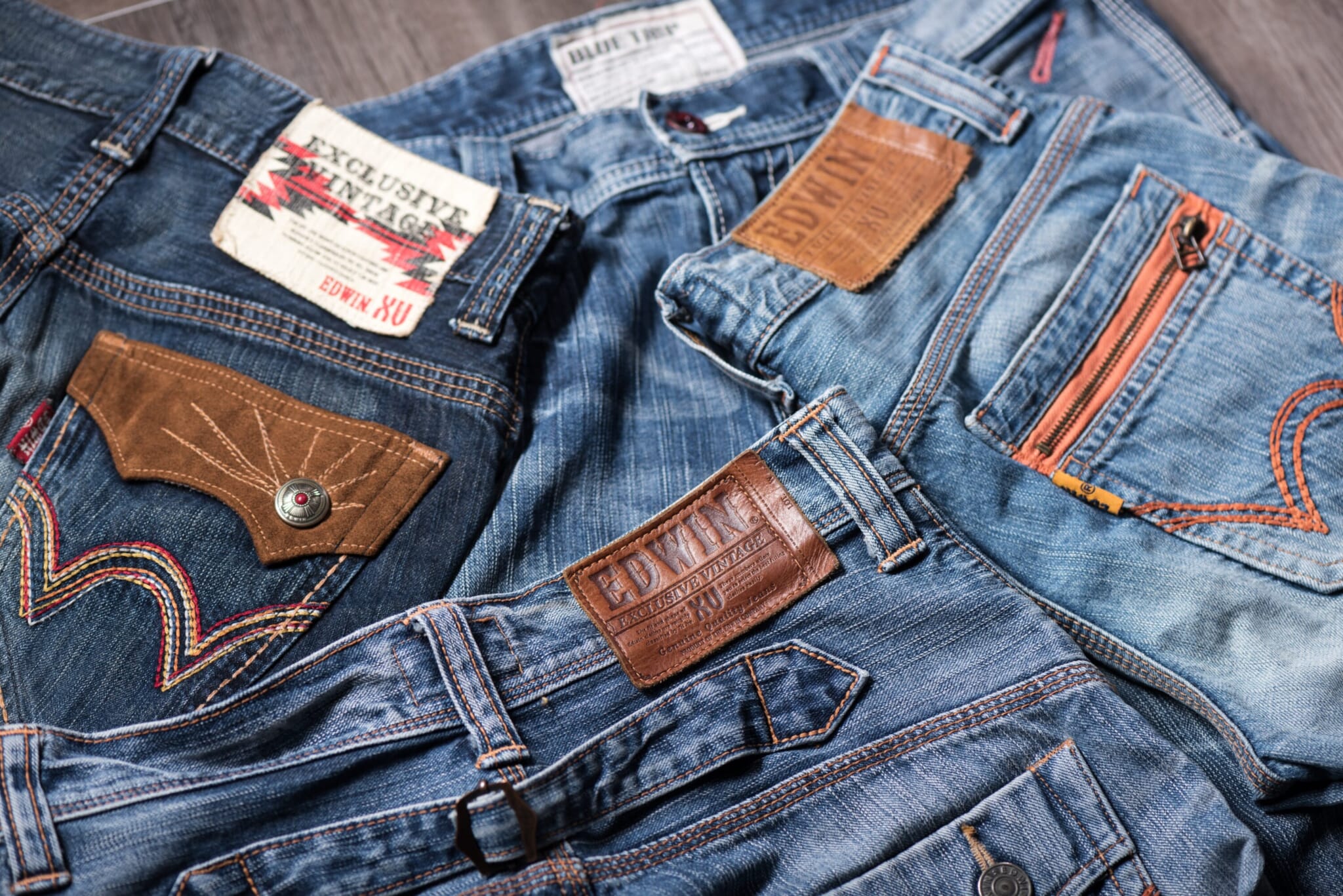
Introduction to Denim Jeans
In 1873, fabric seller Levi Strauss and tailor Jacob Davis patented riveted work pants, after the latter had received a request to make something durable. He hit upon the idea of putting metal rivets into the seam points, while also using thick, sturdy fabric. The fabric was bought from his local wholesaler, Strauss.
The fabric pants we now know as “jeans,” were originally called “overalls.” They were an instant success. Customers were over the moon with their durability. They were thick and able to withstand the daily grind of blue-collar life. The overalls became a staple for Western cowboys and workers across the U.S. Then, in the 1950s, they were popularized thanks to Hollywood movies. With popularity comes change, though, and the overalls eventually became known as “jeans,” reportedly after the Italian town where the denim came from.
Ask any fanatic where the best denim is made, and it’s likely that they’ll point to Japan. Levi’s, when it reached its 100th anniversary, ordered a large portion of its denim from Japanese brand Kaihara. But why?
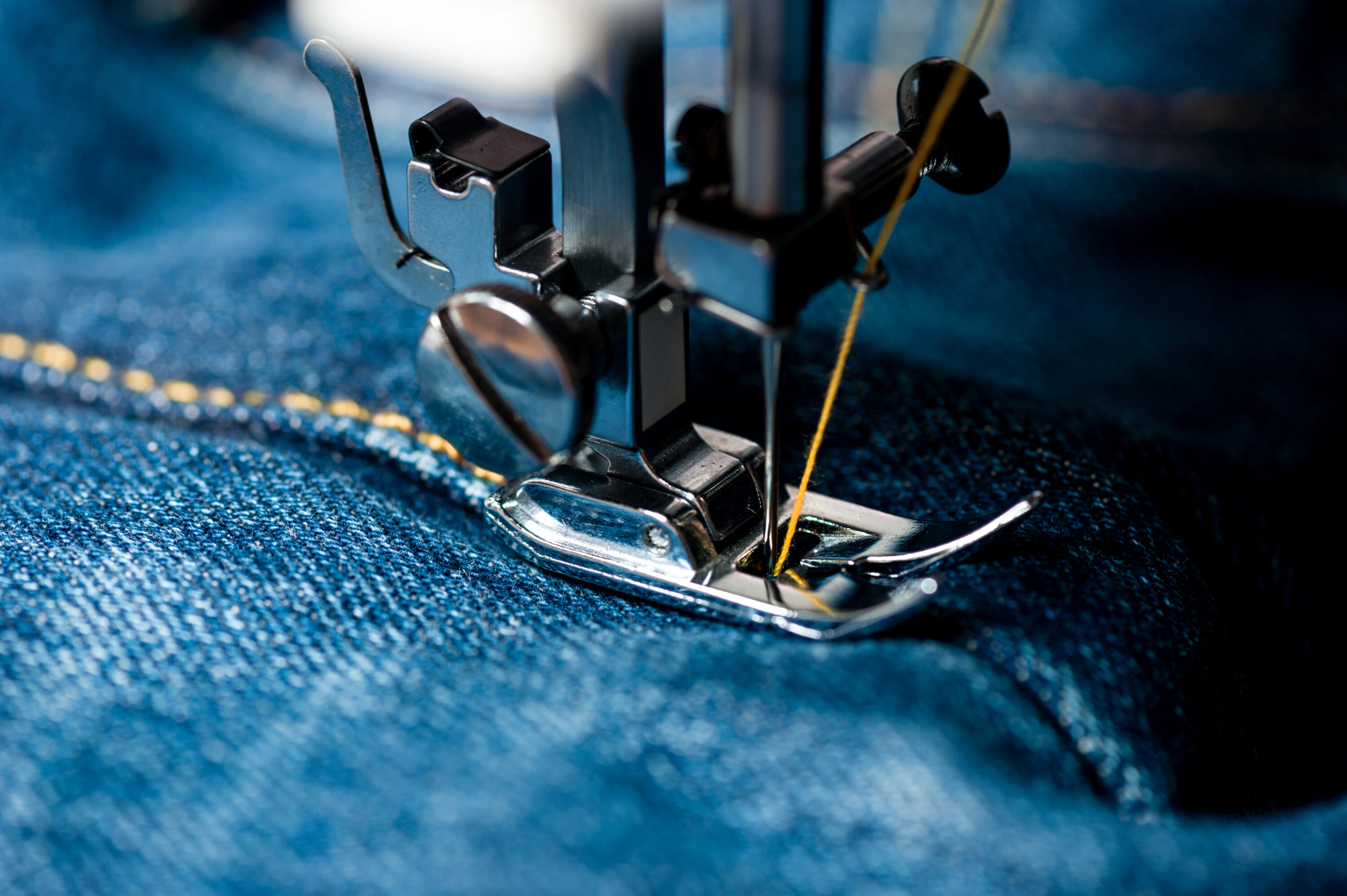
Why is Japanese Denim so Popular?
Japanese denim has several distinct characteristics that set it apart from the rest.
Weight
Weight is an important factor in the world of denim. Just like the weight of a steak, the heavier a length of denim, the better the quality. Generally, Japanese denim is heavier than its overseas counterparts. A typical pair of Levi’s jeans, for instance, weighs between 11 and 14 ounces, while Japanese denim can weigh as much as 35 ounces. This heaviness is created by the thread count. There is simply more fabric woven into Japanese denim.
The looms used to weave the denim are slower and have to be built more sturdily because of this. Put in simple terms: more thread equates to more time. This is also a contributing factor to the price of Japanese denim, which costs more on average than it does overseas. The price is offset due to the long-lasting quality, thanks to the sheer amount of fabric.
Color
The color of Japanese denim is one of its most defining features, taking inspiration from the traditional Japanese indigo dyeing technique, aizome. Aizome has gained popularity thanks to the enduringness of the natural indigo dye, sukumo, which retains its magnificent blue after several washes.
Using the aizome technique, the fabric is dyed multiple times. This can even result in the color becoming deeper as the denim is washed. There is also the possibility of the wash producing a gorgeous fade which is prized by many denim lovers worldwide.
Selvage
Also known as “selvedge,” selvage denim is another defining characteristic of Japanese fabric. It is self-edged, meaning that there is no need for an overlocker to finish the hem, as it is already done. This is achieved by weaving the fabric back onto itself using shuttle looms, which adds to the durability of the clothing.
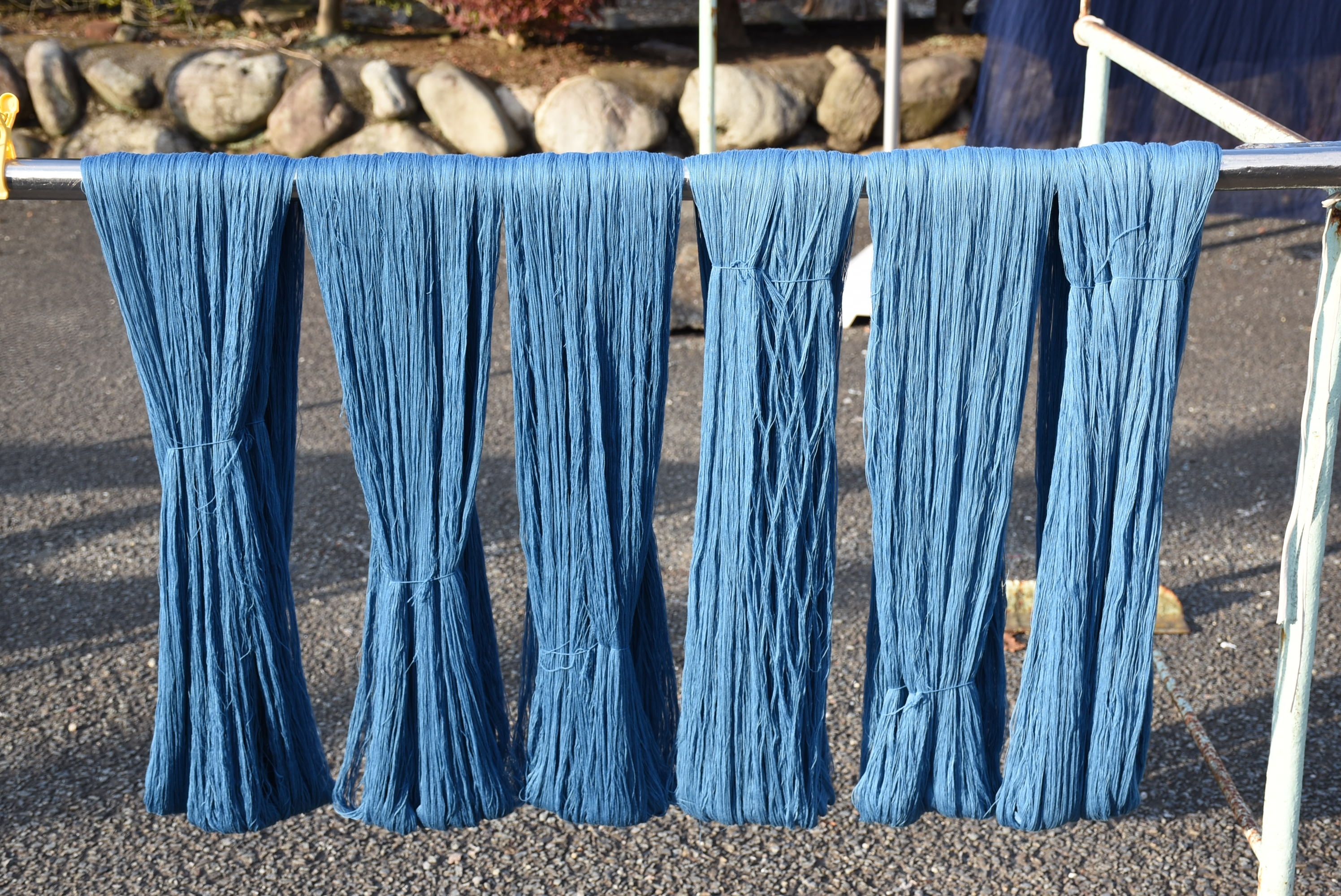
Top Japanese Denim Brands
Unsurprisingly, a number of brands have built their collections on the high quality of Japanese denim, leading to a multitude of domestic jeans brands. We’ve popped a selection of the best and most influential below.
Big John
The Japanese denim brand, Big John was originally a school clothing manufacturer that fell upon hard times in the 1950s. It subsequently decided to develop a new clothing line. At the time, there was a fascination with American jeans in Japan’s bigger cities, such as Tokyo and Osaka. The founder developed denim in Japanese sizes, and eventually became a trusted supplier for U.S. brands as well as domestic companies.
Nowadays, Big John is known for its classic silhouettes, with every aspect of the jeans, from denim to rivets, produced domestically, predominantly in Okayama and Himeji.
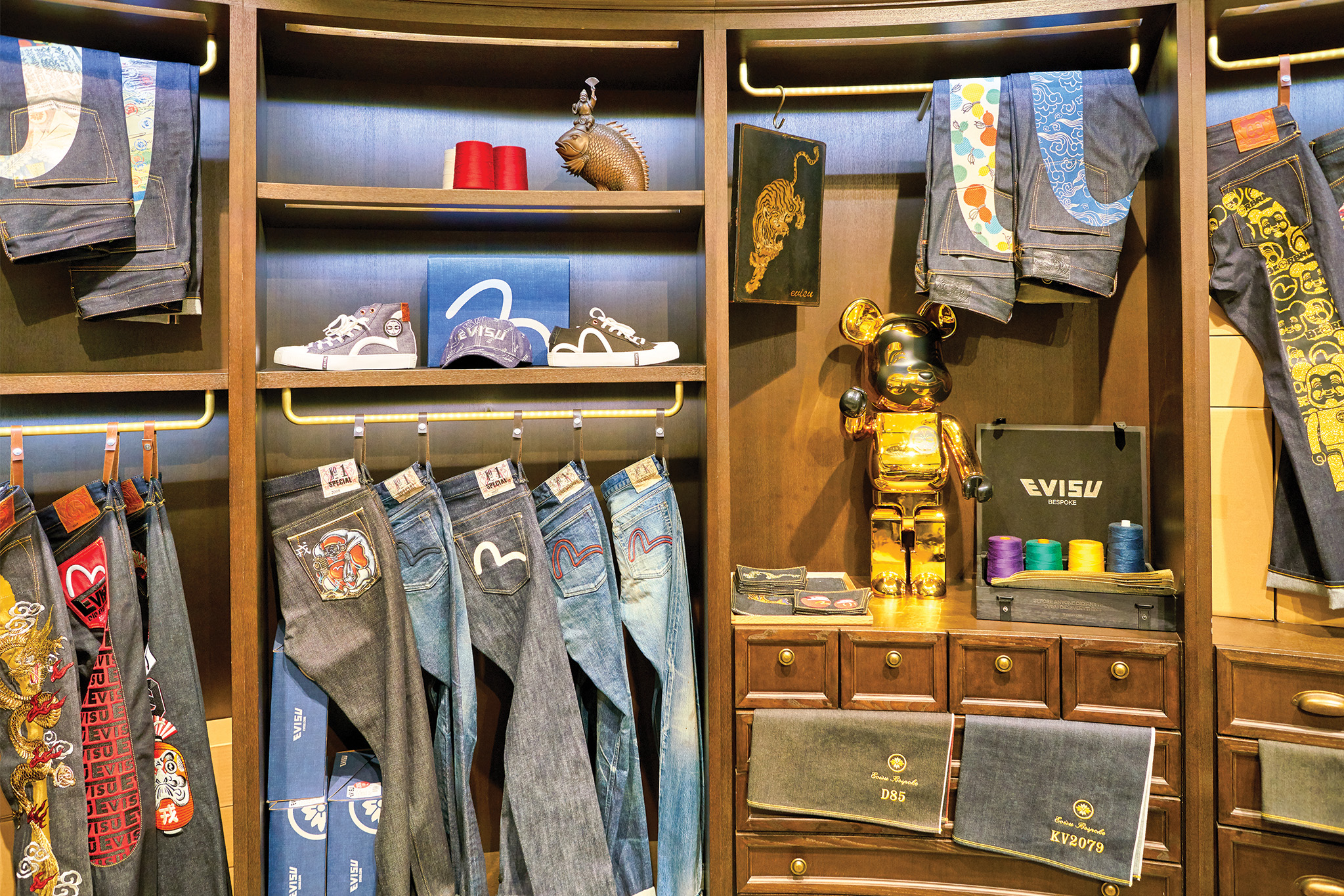
Evisu
Officially launched in Wakayama in 1991, the Evisu denim brand is characterized by its seagull mark on the pockets. It was launched by Hidehiko Yamane, a part-time fisherman, who was disappointed by the quality of the vintage jeans sold at the time. He wanted to recreate the original Levi’s jeans, and went to earth-traversing lengths to achieve his goal, sourcing the original loom that the company’s denim was created on. The loom was long retired by Levi’s, who had been using a cheaper loom instead. Yamane named his brand Evis after the Japanese god of luck, Ebisu, later changing the name to Evisu as it was considered too close to Levi. The brand defining seagull on the back pockets was originally hand-painted by Yamane due to his love of fishing.
Japan Blue Jeans
Taking its name from the distinctive indigo blue shade made using Japanese indigo dyeing techniques, Japan Blue is perhaps the country’s most recognizable denim brand after Evisu. Founded two years after the latter was established, Japan Blue Jeans focuses on selvage denim in a classic vintage style. Parent company, Collect, also owns Momotaro Jeans, its sister brand famed for its Crown Label jeans that have an extremely high price tag.
The jeans are handwoven and made to order. During the process, they are dyed several times in natural indigo and hand-washed in the Japanese Seto Inland Sea. This amounts to around 13.5 ounces of denim. Many fans are prepared to pay the high price tag due to the jeans’ undisputable quality.
Samurai
Founded amid the denim boom of the 1990s, Samurai is, like Evisu, a classic Kansai denim brand. Utilizing samurai imagery, Samurai jeans are revered for their sharp fade concept and commitment to craftsmanship. In recent years, the brand has championed cotton grown in Japan too.
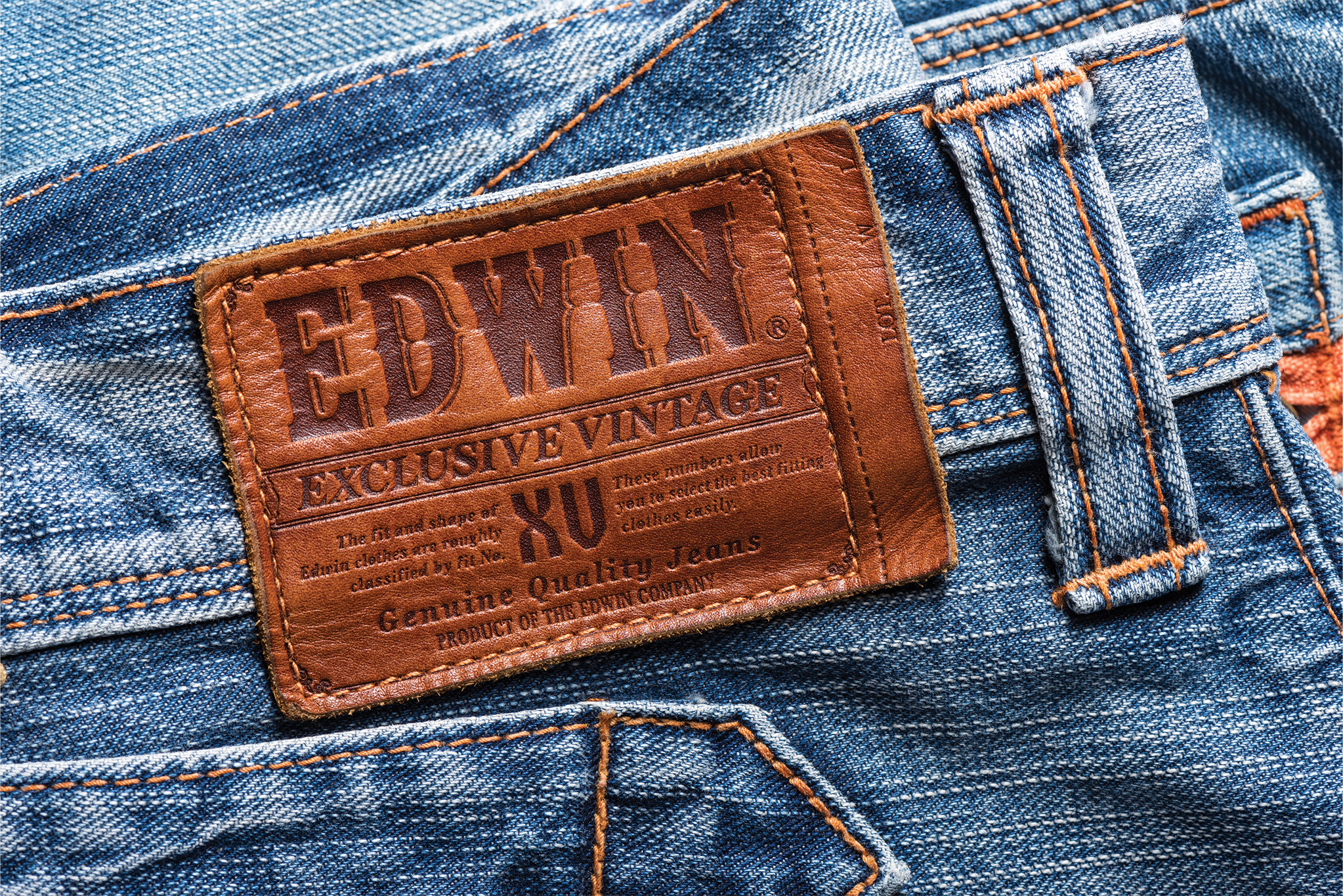
Edwin
The Japanese jeans brand, Edwin, is recognizable even outside the denim world. It also probably has the most accessible price point. As with the American company Dickies, Edwin started off selling work clothes before branching out into jeans. Buying in Japan means it will be a domestically made product, with purchases in the States and Europe made in the U.S. and Tunisia respectively.

